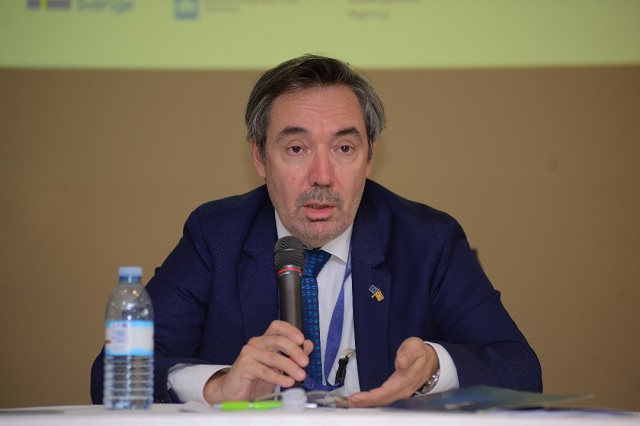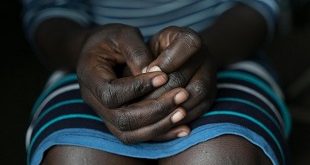
Kampala, Uganda | Patricia Akankwatsa | In December 2020, the EU and EDFI ElectriFI agreed on establishing a dedicated ElectriFI Country Window for Uganda, with a specific funding package of EUR 5 million, to be invested in renewable energy companies active in Uganda.
The launch of the Uganda Country Window will enable Uganda’s capacity to usher in its electricity-generating potential and step up its efforts to mobilise renewable energy resources while tapping into private-sector funding. This support provided by the European Union will contribute to Uganda’s efforts to unlock significant economic, social and environmental development opportunities and to tackle various challenges such as the loss of forests, biodiversity and soil fertility due to the massive use of charcoal.
In the last 5 years, the EU has set up a programme to support Uganda’s energy sector worth more than 100 million EUR that – in a Team Europe Approach together with its Member States – has leveraged an additional 1 billion EUR.
It is also going together with a panel discussion today during the Renewable Energy Conference 2022 (REC22, www.re-conf.com). The aim is to discuss and advance innovative and inclusive joint public-private collaboration to support renewable energy entrepreneurs committed to accelerating clean energy access in Uganda.
While speaking at the launch, Lennart Deridder, Acting Head of Cooperation – EU Delegation said that Uganda is richly endowed with renewable energy resources. The total estimated potential is about 5,300 MW of electricity generating capacity. This is equivalent to 5 nuclear power plants. These resources, however, remain largely unexploited.
“Hydropower and biomass are considered to have the largest potential for electricity generation. But also solar power receives increasing attention from investors. Moreover, located in the East African Rift Valley, Uganda has promising potential for the exploit geothermal energy,” he said.
He also added that Emerging economies – such as the Ugandan – need this transition not only to halt CO2 emissions in the context of the fight against Climate Change. It is first and foremost needed to tackle the loss of forests, biodiversity and soil fertility due to the massive use of charcoal. Using charcoal generates productivity loss, and additional fatalities due to respiratory disease and increases the disastrous effects of Climate Change through floods and landslides.
Women and children die prematurely because of respiratory diseases linked to the use of petrol and charcoal to light and cook.
The data of the Africa Energy Outlook 2022 of the International Energy Agency indicate that the total number of people without access to electricity has increased by 4% reversing the trend of people gaining access. COVID is probably one of the main triggers of this evolution, Uganda is one of the countries that is contributing to this trend.
The EU Global Gateway launched last year is a new European strategy to boost smart, clean and secure links in digital, energy and transport sectors and to strengthen health, education and research systems across the world. The EU is stepping up its offer to its partners such as Uganda with major investments in infrastructure development around the world and in Uganda in particular.
ElectriFI is an impact fund bridging the financial gap in terms of equity, quasi-equity and debt to private companies investing in rural electrification, commercial and industrial captive power, productive use of energy, e-mobility and independent power producers, amongst others.
Established in partnership with European Union Delegations and host governments, ElectriFI Country Windows offer dedicated funding for selected countries, in line with national objectives.
 The Independent Uganda: You get the Truth we Pay the Price
The Independent Uganda: You get the Truth we Pay the Price



